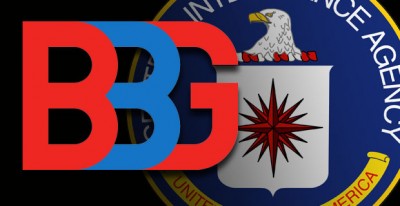U.S. Broadcasting Board of Governors (BBG) Characterizes “Alternative Media as Terror”
BBG associated with CIA white propaganda efforts

Bolivian President Evo Morales weighed in on the controversy over remarks made earlier this month by Andrew Lack, the new chief executive of the Broadcasting Board of Governors (BBG).
Bolivian president praises #RT for being voice of developing countries http://t.co/CCivSjzfoq #newsisnotterror pic.twitter.com/yQe1dYJYEf
— Sputnik (@SputnikInt) January 30, 2015
BBG is also associated with the United States Information Agency and the National Endowment for Democracy. “A lot of what we do today was done covertly 25 years ago by the CIA,” Allen Weinstein, who helped draft the legislation establishing NED, said in 1991.
“When the media turns into the voice of the people, especially in the voice of revolutionaries, there are those people and the media, who will judge them and falsify the truth,” Morales told RT, the Russian state-funded cable and satellite television channel. “This media is the voice of the developing countries, the voice of the peoples of the world, and it deserves our admiration.”
During an interview with The New York Times, Lack said it is the job of the BBG to confront news organizations not under the control of the U.S. government.
“We are facing a number of challenges from entities like Russia Today which is out there pushing a point of view, the Islamic State in the Middle East and groups like Boko Haram, “ said Lack, the former president of NBC News. “But I firmly believe that this agency has a role to play in facing those challenges.”
Lack’s comments were so transparently over the top, even the State Department felt obliged to distance itself from them:
URGENT: State Dept disagrees with US BBG chief over equation of RT with #ISIS http://t.co/ujqbiGWu23 #NEWSISNOTTERROR pic.twitter.com/p2j7XSqb9P
— RT (@RT_com) January 23, 2015
Former Minnesota Governor Jesse Ventura told RT Lack and the BBG are calling alternative media to be censored.
“There should be no Big Brother telling us what we can or cannot see,” Ventura said. “If someone desires to watch RT TV and takes the opinion they don’t like, well then they merely don’t have to put it to that station.”
Comparing news org RT to ISIS? Big Brother should NOT be telling us what to watch. My thoughts here: http://t.co/khpptNpjqV #NewsIsNotTerror
— Jesse Ventura (@GovJVentura) January 29, 2015
Michael Krieger, the editor of Liberty Blitzkrieg, points out that RT is popular in the United States and thus a challenge because Americans are fed up with news coverage offered by the corporate media.
“RT’s success was not because the Russian state poured so much time and money into the network,”Krieger writes. “It’s success was a direct result of the U.S. mainstream media being so childish and useless. By spewing a mind-numbing amount of inane celebrity gossip, sports drama and cartoonish American propaganda, a massive audience yearning for a different perspective was already present and underserved. RT merely came along and filled that void.”

